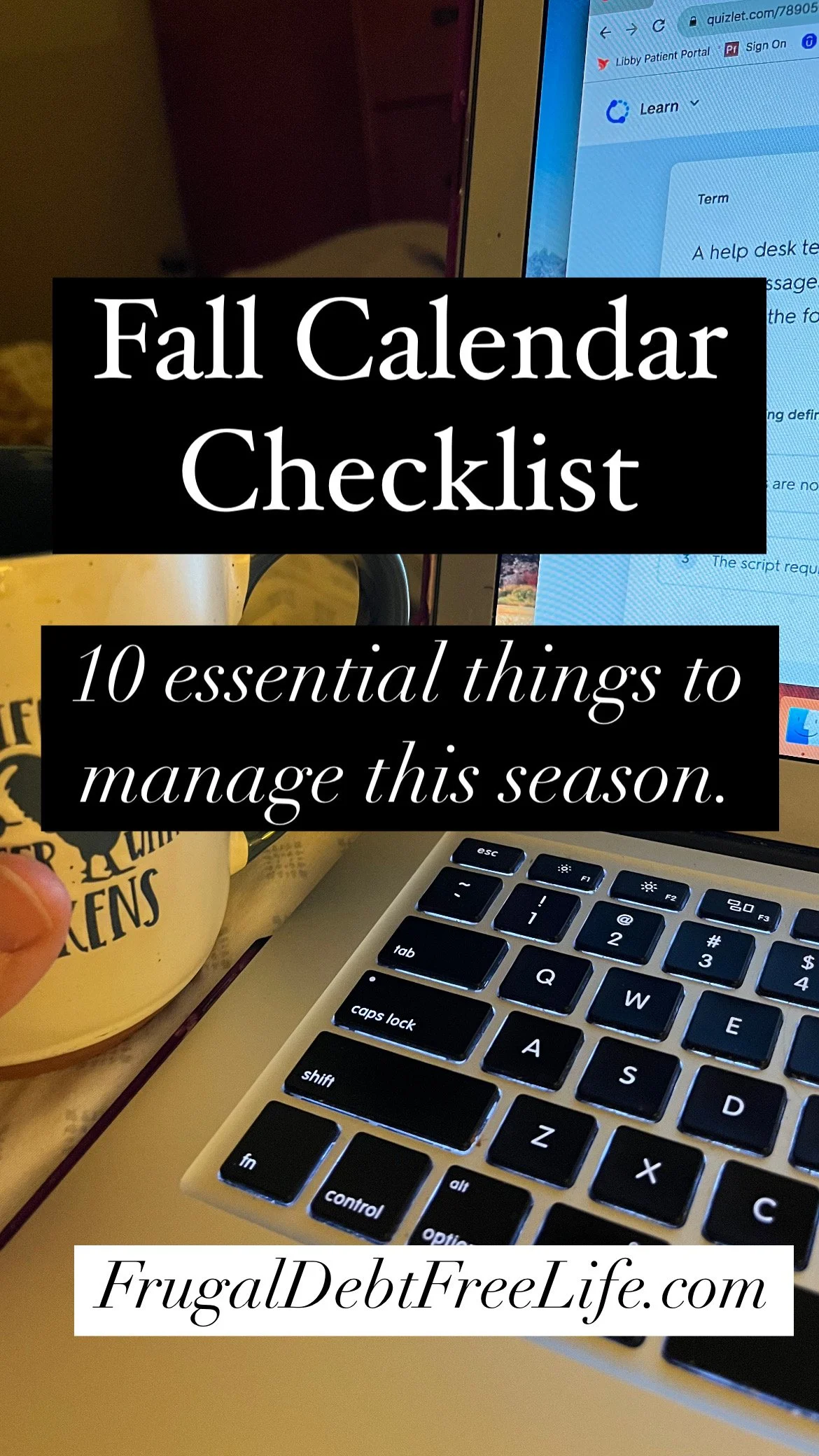18 Money Mistakes to Stop Making in 2018
/It's a new year and a new opportunity to make good money decisions. Here's the thing. No one is perfect with personal finance. No one. But one good place to get BETTER with personal finance is to stop making common mistakes that prevent you from reaching your goals. It's all about small steps. Small changes that have a big impact.
1. Not having a budget.
Do you want to get out of debt? You need a budget. Do you have big financial goals? You need a budget. You need one. Here is a good place to start.
2. Not reevaluating your budget.
Life changes and so should your budget. If you've had a baby, gotten a new job, lost a job, bought a house, moved to a new city, taken a pay cut, had a child begin driving. etc. etc. Your budget will change as your life changes.
3. Giving up when your budget isn’t perfect.
It takes about three months to perfect a budget. Don't quit the first time it fails.
4. Not having an adequate emergency fund.
Life will happen. Bad things will happen (not to sound all gloomy!). And you need to be as prepared as you can.
5. Wracking up credit card debt
According to Time Magazine: On average, Americans between the ages of 18 and 65 has $more than $4,000 in credit card debt.
And according to CreditCards.com, the average credit card’s interest rate is 15%. That's insanity.
If you only make the minimum payment on that credit card debt it will take you ten years to pay it off.
6. Carrying non-mortgage debt that exceeds your income.
I talked about this in a recent video about disturbing debt statistics, but 13 states (including Alabama where I live) carry debt that exceeds their income. That's credit cards, student loans, car payments and personal loans that EXCEED the annual income of these households.
It's tragic really and a sets people up for a lifetime of debt.
7. Paying to get money from the ATM.
So on average ATMs charge a $3 fee to get cash. If you go once a week that’s $156 a year! Instead, withdraw cash from your actual bank. Last year US banks made $6.4 billion in overdraft and ATM fees. (Source)
8. Overdrafting.
Over drafting. First of all we all need to be balancing our checkbooks. (And let’s not pretend to not be guilty of doing this. We have all forgotten and overdrafted. No one is perfect).
But, did you know that you are actually supposed to opt-in to overdraft protection? Meaning you’re not even supposed to be able to continue using your debit card unless you specifically sign up for overdraft protection.
9. Paying other bank fees.
Are you paying for your checking account? Savings Account? Etc. Ummmm no. Banks lend out your money to other people and charge them interest. That’s how they make money. Don’t let them double dip.
10. Ignoring estate planning.
Unless you’ve figured out how live forever, you need to make plans for what’s going to happen. Do you have a will? Do you have a directive? Sit down with an estate planner or even set up a simple will. This isn’t something you should be ignoring.
11. Getting behind on payments
Life happens. But falling behind creates a cycle. This is why an emergency fund is important, but it’s also important to be proactive. If you see you’re going to be behind call and make arrangements with the people you owe money to.
12. Not teaching your kids about money.
My oldest is only 6, but we've started to teach our children about saving, spending and giving. In fact, Ryals has set some savings goals for himself and he's always excited to put money in the offering plate at church. We're not perfect about teaching him, but it is a priority.
13. Not making saving a priority
Money doesn't just appear in our savings accounts, we have to put forth the effort. You are important. Your goals are important. Prioritize them.
14. Not checking your receipts.
This happens to me all the time. I think something is one price but I am charged another. If I didn't check my receipts everytime I would just be giving the store my extra money when I didn't have to. Get the sale price and confirm that you did.
15. Not waiting 24 hours to make large purchases
Waiting for a big purchase is super important. It allows the impulsivity die down and you can really focus on whether or not you want the item or need it.
16. Going with the cheapest option
Okay, I know this sounds CRAZY from a frugal blogger, but going the cheapest route isn't always the best thing. There is a huge difference between cheap and frugal.
Going with the cheapest options often means you will need to replace that item much faster or you will end up regretting it in the end. Take the time to research and get the most value.
17. Caring what other people think
This is a big one and a topic that I really want to go deeper in, but for now, I will say: no one lives your life but you.
People might make fun of your frugal choices. People might question why you choose to live the way you do. People might tell you to just live a little.
But at the end of the day, you don't answer to them. They don't pay your bills and they won't pay off your student loans. Stand firm in your frugal convictions.
18. Not having enough homeowners and auto insurance
Whew. This is a big one. Jason and I realized recently we were dangerously underinsured in our auto insurance. You can learn more about that here.
What about you? What money mistakes are you going to stop making in 2018? Leave me a comment.

























